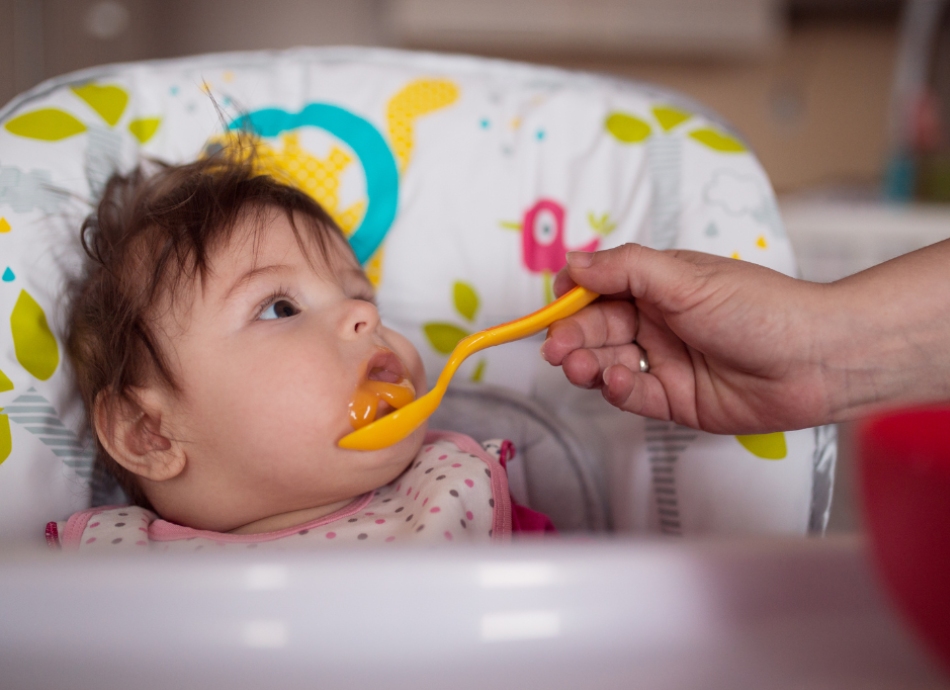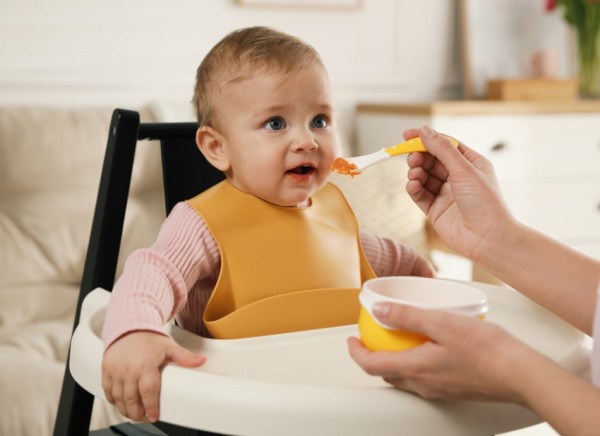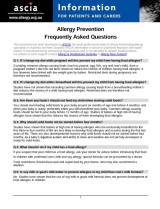You can now add Healthify as a preferred source on Google. Click here to see us when you search Google.
Reducing food allergies in infants
Key points about reducing food allergies in infants
- Research shows that giving your baby the common allergy causing foods before they turn 1 year of age can help reduce the risk of them developing an allergy to that food.
- Delaying the introduction of the common allergy causing foods doesn't prevent food allergy.
- If you think your baby has a food allergy, seek advice from your healthcare provider.
- if you think a food is causing eczema, colic or reflux, please see a healthcare provider before removing the food.
- The content on this page comes from KidsHealth(external link).

Helping reduce the risk of a food allergy
Research shows that giving your baby the common allergy causing foods before they turn 1 year of age can help reduce the risk of them developing an allergy to that food.
When your baby is ready at around 6 months, but not before 4 months, start to introduce first foods including smooth peanut butter and well-cooked egg. Delaying the introduction of the common allergy causing foods doesn't prevent food allergy.
Pēpi (babies) have a natural ability to tolerate new foods. This disappears as they get older. Delaying the introduction of foods could lead to an increased chance of food allergy.

Image credit: Depositphotos
If you're breastfeeding, continue while you introduce solid foods
Breastfeeding is recommended for the many benefits it provides to both mothers and pēpi. If breastfeeding, it's important to continue while you introduce solid foods to your baby.
Keep eating all foods if you're a breastfeeding mother
It's important to keep eating all foods if you are a breastfeeding mother. See an allergy trained doctor or dietitian before removing a food from your diet. Most allergic reactions don't occur through the breastmilk.
Introduce common allergy causing foods to all babies before 1 year of age
This advice is for all pēpi, whether you have a family history of food allergy or not. Your baby does not need testing before eating a food. Testing doesn't show whether they will have a reaction when they eat the food.
Pēpi with eczema have a higher chance of developing a food allergy to a food they don't eat.
If you think your baby has a food allergy, ask your healthcare provider for advice. It's important that an allergy trained healthcare provider confirms any food allergies, once there are suspicious symptoms.
Preventing allergies Whānau Āwhina Plunket(external link) Check Plunket's information on preventing food allergies in babies.
Nip allergies in the bub National Allergy Council, Australia(external link) Find out about common allergy-causing food, and ways to prevent food allergy.
Allergy prevention, ASCIA guidelines(external link) The Australasian Society of Clinical Immunology and Allergy Limited (ASCIA) is the professional body of clinical immunology and allergy in Australia and New Zealand.
ASCIA has developed the following guidelines for parents and health professionals to help reduce the risk of infants developing allergies:
Allergy prevention – frequently asked questions(external link)
Infant feeding and allergy prevention(external link)
How to introduce solid foods to babies for allergy prevention – frequently asked questions(external link)
References
The content on this page is based on content at the 'Nip allergies in the bub' website. The website is an allergy prevention project supported by the Australian Society of Clinical Immunology and Allergy (ASCIA), the National Allergy Council and Allergy and Anaphylaxis Australia. The project received funding from the Australian Government Department of Health.
This content has been developed and approved by the Allergy Clinical Network of the Paediatric Society of New Zealand - Te Kāhui Mātai Arotamariki o Aotearoa. The content aligns with Healthy eating guidelines for New Zealand babies and toddlers (0 to 2 years (external link)old)(external link) Ministry of Health, NZ, 2021
Brochures

ASCIA, Australia, 2024
Credits: Content shared between HealthInfo Canterbury, KidsHealth and Healthify He Puna Waiora as part of a National Health Content Hub Collaborative.
Last reviewed:






